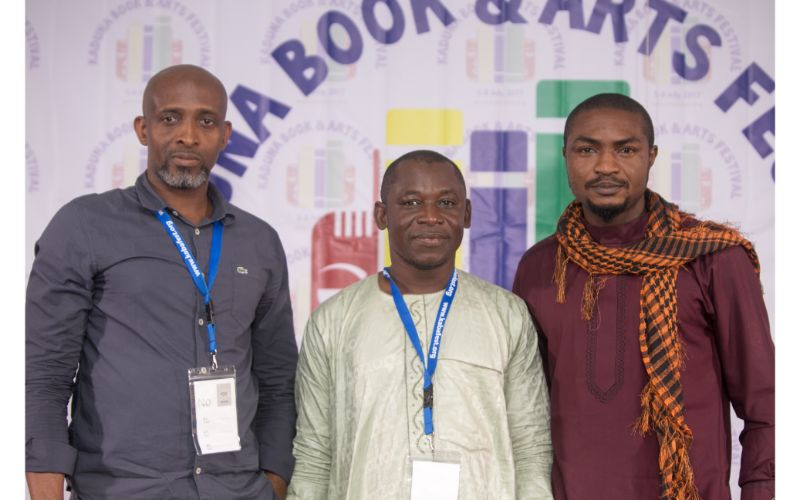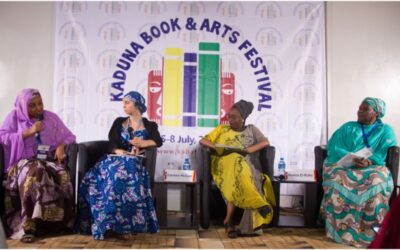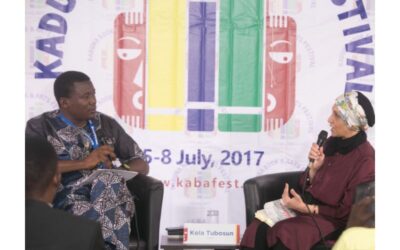Seeing and Believing: Of Southern Musicians and Northern Provocateurs
The booklogue, titled “Seeing and Believing” brought to the literary engagement front two great novelists on their first novels, Abubakar Adam Ibrahim with Season of Crimson Blossoms and Odafe Atogun with Taduno’s Song dutifully moderated by Professor EE Sule.
Abubakar Adam Ibrahim started reading from page 295 of his trailblazing novel, Season of Crimson Blossoms, and no matter how many times you’ve read the book when Abubakar brings out the character in his own voice, it seems like you are starting the book afresh all over again. Abubakar reads with crimson beauty and a blossoming narrative. Let me give you a taste of this language back to the beginning of the book, a paragraph strikes you with its language:
“Hajiya Binta Zubairu was finally born at fifty-five when a dark-lipped rogue with short, spiky hair, like a field of miniscule anthills scaled her fence and landed, boots and all, in the puddle that was her heart.”
That is exactly how Season of Crimson Blossoms scales the fence and jumps into the puddle of this literary engagement.
Odafe Atogun on the other hand starts reading Taduno’s Song from a part that is a letter. Just like the title implies, the letter is in the form of a song, and this short excerpt is read poetically by Odafe pushing us into the larger than life narrative that is embedded in Taduno’s Song. It is not just the character that pops out of the reading, but also the idea of a notorious city that is Lagos, and that is where we encounter the wildness of Odafe’s imagination.
In the booklogue discussion that follows, we definitely see and we believe. On one side, Taduno’s Song is a character of a southern musician, while in Season of Crimson Blossoms, we have Binta Zubairu as a northern provocateur that breaks patriarchal barriers. Hear her speak:
“And because they were alone in the house, because she had always wanted to, because she could not stop herself, she moaned. With his tongue, he unlocked something deep within her. She soared with tears streaming down her face.”
“I am a dreamer.” Odafe spills the beans. This explains the fable like style of Taduno’s song and the exploration of the power of the art in writing. As a fan of music, its influence towards writing Taduno’s Song is quite reputable, using music as a weapon against tyranny, and Taduno is the character wielding that weapon.
This panel allowed us to see and believe as promised. But even more, the novelists shredded issues of the society and blended them with the stories of their novels and laid the gauntlet to the audience, to think and re-think, towards an inner mind revolution.
The music of a hero against tyranny, and the sexuality of a fifty-five year old widow became vessels that projected fables and provocations in two different societies and challenged us to look at ourselves and crash our stereotypes. Our novelists had simple jobs, they inspired and they provoked, and urged us to look at our society critically.
Written By Sada Malumfashi



Comments are closed.